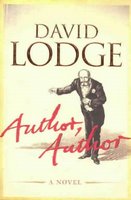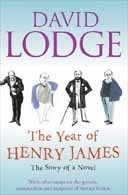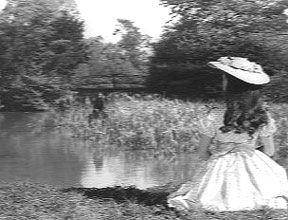Showing posts with label henry james. Show all posts
Showing posts with label henry james. Show all posts
Tuesday, May 26, 2009
Henry James of Lamb House
A photo of Lamb House in Rye, Sussex, where Henry James lived 1898-1916 which I visited while staying with my friends Jean and Barry Floyd. James wrote his three late novels here : The Wings of the Dove (1902), The Ambassadors (1903), and The Golden Bowl (1904). He wrote in a small house in the garden which was unfortunately destroyed by a German bomb (the planes unloading on their way back home during the blitz).
Visitors to the house included Joseph Conrad, H.G. Wells and Ford Maddox Ford, and it later became home to two other famous authors E.F. Benson (author of the Mapp and Lucia novels set in Rye) and Rummer Godden.
The property is now owned by the National Trust and many of James' personal possessions were on display including some fascinating letters.
I hope at least a smigeon of James' genius was sticking to the wall and reattached itself to me ...
Saw another of Rye's famous writers, though just in passing, Freddie Lees (whose trilogy is to be publsihed soon by Monsoon Books in Singapore) was just getting off the train from London as I was about to get onto it to go back.
Friday, April 10, 2009
The Short Story is in Good Health
A. O Scott in The New York Times speaks out against the habit of undervaluing the short story in American letters and points out that :
The great American writers of the 19th century, whose novels are now staples of the syllabus, all excelled in the short form. Herman Melville’s “Piazza Tales” are as lively and strange as “Moby-Dick”; Nathaniel Hawthorne’s tales and sketches are pithier than “The Scarlet Letter”; Henry James’s stories, supernatural and otherwise, show a gift for concision along with the master’s expected psychological acuity. And the first great American fiction writer, Edgar Allan Poe, secured his immortality by packing more sensation into a few pages than most of his contemporaries could manage in a volume.Furthermore, the art is still alive and well :
The death of the novel is yesterday’s news. The death of print may be tomorrow’s headline. But the great American short story is still being written, and awaits its readers.James Lasdun also writes about the neglect of the short story :
Of the literary arts the short story has always been the least honoured, trailing into the House of Fame a humble fourth after novels, plays and poetry. Between Chekhov and Cheever there can't have been more than a dozen major reputations founded solely or even largely on this unassuming form. You might have thought that in our own attention-deficient age, a narrative art based on speed and brevity would have become the main attraction, but outside the creative writing workshop, where its small scale makes it convenient for study (a dismal basis for survival), that hasn't been the case. Lack of encouragement may be the cause, or it may be something inherently skittish about whichever muse presides over this delicate art: a reluctance to settle anywhere long enough to generate a heavy-duty literary industry. It may be the relative newness of the form (if you accept Turgenev's claim that "we all come out from under Gogol's Overcoat", you can date its birth precisely to 1842), or it may be that people regard it as somehow highbrow or artsy; an insider sport for practitioners and aficionados only.But he too sees things changing and highlights some of this Spring's exciting debuts from across the globe which he sees as indicative of a growing confidence in the form.
Saturday, July 01, 2006
2004: The Year of Henry James
 How would you feel if you wrote a novel about a famous historical character, only to find that another novelist had chosen exactly the same subject and even focused on the very same period of his life?
How would you feel if you wrote a novel about a famous historical character, only to find that another novelist had chosen exactly the same subject and even focused on the very same period of his life?Poor David Lodge! He did not realise until after he'd finished his Author, Author that Colm Toibin had also written a novel about Henry James, the highly acclaimed, The Master.
Lodge must have felt pretty gutted as he saw more critical praise heaped on his rival's novel than on his, along with nominations for the top awards. (And of course, The Master won the IMPAC Prize.)
Lodge has now written The Year of Henry James, in which he looks back on the experience. But he still hasn't managed to bring himself to pick up Toibin's book, he says.

Was there something in the air or in the water in 2004, that made the world suddenly go mad for Henry James? As this piece in the Telegraph points out:
There were no features in Vanity Fair, no editorial columns, and no heated discussions in pubs. But among writers, everything went a bit James. ... Four Jamesian novels came out within months of each other: biographical works by Colm Tóibín and David Lodge, and more tangential novels from Alan Hollinghurst and Toby Litt (The Line of Beauty and Ghost Story). How should one respond to this synchronicity, other than to accept it as proof that novelists are not only cut off from the wider world, but that they are cut off in the same kind of way?James has always been a writer's writer and I think the apparent synchronicity reflects a desire for a return to a kind of elegant craftsmanship that seems to have fallen by the wayside in modern fiction writing.
Time to reread the master himself!
Monday, June 05, 2006
Scary Stuff
 The Visitor tells me that the world is going to end tomorrow (06/6/06) so it might be a suitable occasion to write about some chilling reads. (I like to be topical.)
The Visitor tells me that the world is going to end tomorrow (06/6/06) so it might be a suitable occasion to write about some chilling reads. (I like to be topical.)Terence Rafferty in the New York Times ponders the attraction of horror stories in The Thinking Reader's Guide to Fear and goes on to list some of the latest and best supernatural fiction.
Meanwhile, Colm Toibin in the Guardian writes about one of the most chilling stories ever written: The Turn of the Screw by Henry James, which was filmed in 1961 as The Innocents (left) and utterly totally terrified me as a child.
Anyway, take comfort: the world can't end tomorrow because they're announcing the winner of the Orange Prize.
Related Posts:
Satanic Synchronicity 29/4/05)
The Comforts of Horror (31/5/06)
Subscribe to:
Posts (Atom)